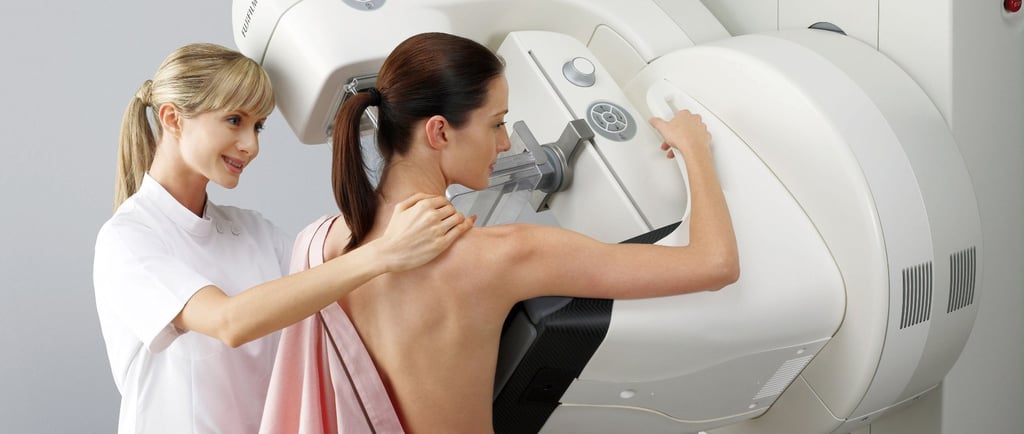items chosen one by one so you have the best option and save money on amazon (Links in articles)
Brazilian Scientists Develop Painless Microwave Mammogram to Revolutionize Breast Cancer Detection
A group of Brazilian researchers has developed a groundbreaking medical technology that may transform how women detect and monitor breast cancer: a painless mammogram based on microwave imaging. Unlike conventional mammography, which uses X-rays and compression of the breast — often causing discomfort or pain — this innovation offers a non-invasive, radiation-free, and highly effective alternative. Here’s how it works, why it matters, and what it could mean for the future of women’s health.
5/24/20252 min leer


Why Traditional Mammograms Are Problematic
Mammograms have been the gold standard for breast cancer screening for decades. However, they come with major drawbacks:
Pain and discomfort from breast compression
Exposure to ionizing radiation
Reduced accuracy in women with dense breast tissue
Limited access in rural or underserved regions
Psychological reluctance, which delays early detection
This combination of factors causes many women to skip routine screenings, which significantly increases the risk of late-stage diagnosis — when treatment becomes more difficult and survival rates drop.
The Brazilian Innovation: Microwave Imaging Mammography
Developed by engineers and medical scientists at institutions such as Universidade Federal de Pernambuco (UFPE) and Universidade Federal do Rio Grande do Norte (UFRN), the new microwave-based mammography system detects tumors without compressing the breast or using harmful radiation.
How It Works:
The breast is gently placed inside a hemispherical device, similar in shape to a bowl.
Low-frequency microwaves are emitted into the tissue.
These waves reflect differently depending on the composition (fat, muscle, tumor, etc.).
Sensors capture the returning signal to generate a 3D map of the breast.
A computer algorithm analyzes the data and highlights any abnormal regions.
The entire procedure takes just a few minutes and is completely painless.
Is It Accurate?
Yes — and in some cases, even more so than traditional mammography.
Key Performance Points:
No radiation exposure
Capable of detecting tumors as small as 5mm
Works well in women with dense breast tissue
High sensitivity and specificity based on clinical trials
Can be used multiple times a year, ideal for patients under close monitoring
The Brazilian team has already tested the device on dozens of volunteers with promising results and plans to expand trials to more patients across the country.
Global Implications: Accessible and Scalable Screening
One of the most exciting aspects of this innovation is its potential for global scale.
Because the microwave mammogram:
Uses low-cost components
Requires no protective shielding
Can be made portable
Doesn’t need highly specialized technicians
…it opens the door for mass deployment in rural clinics, mobile units, or even pharmacies.
This could dramatically increase screening rates in underserved regions not only in Brazil, but in developing countries across Africa, Asia, and Latin America.
A Step Toward Personalized Preventive Medicine
Microwave mammography is part of a broader movement toward non-invasive, AI-enhanced, and patient-friendly diagnostics.
Imagine a world where:
You can check for tumors during routine checkups
Doctors receive real-time imaging feedback through cloud-based systems
Algorithms track micro-changes in breast tissue over time to detect cancer early — even before it forms a mass
This technology is also compatible with machine learning, allowing future versions to become smarter, faster, and more accurate with every scan performed.
Challenges Ahead
As promising as it is, there are still steps before the microwave mammogram hits the global market.
Regulatory approval: Agencies like ANVISA (Brazil) and FDA (US) will need to certify the device's safety and efficacy.
Clinical trials: Larger, peer-reviewed studies are needed to validate results across diverse populations.
Production scaling: Building these machines at scale and training local operators will be key.
But the first steps have already been taken, and the global health community is watching closely.
Final Thoughts: Brazil’s Role in Global Medical Innovation
This microwave-based mammogram is a milestone for Brazilian science, highlighting the country’s growing presence in health tech innovation.
More importantly, it’s a step toward a more compassionate and accessible future of medicine — one where no woman has to choose between pain and early detection.
🌍 A device like this doesn’t just change how we scan for cancer. It changes who gets to survive it.